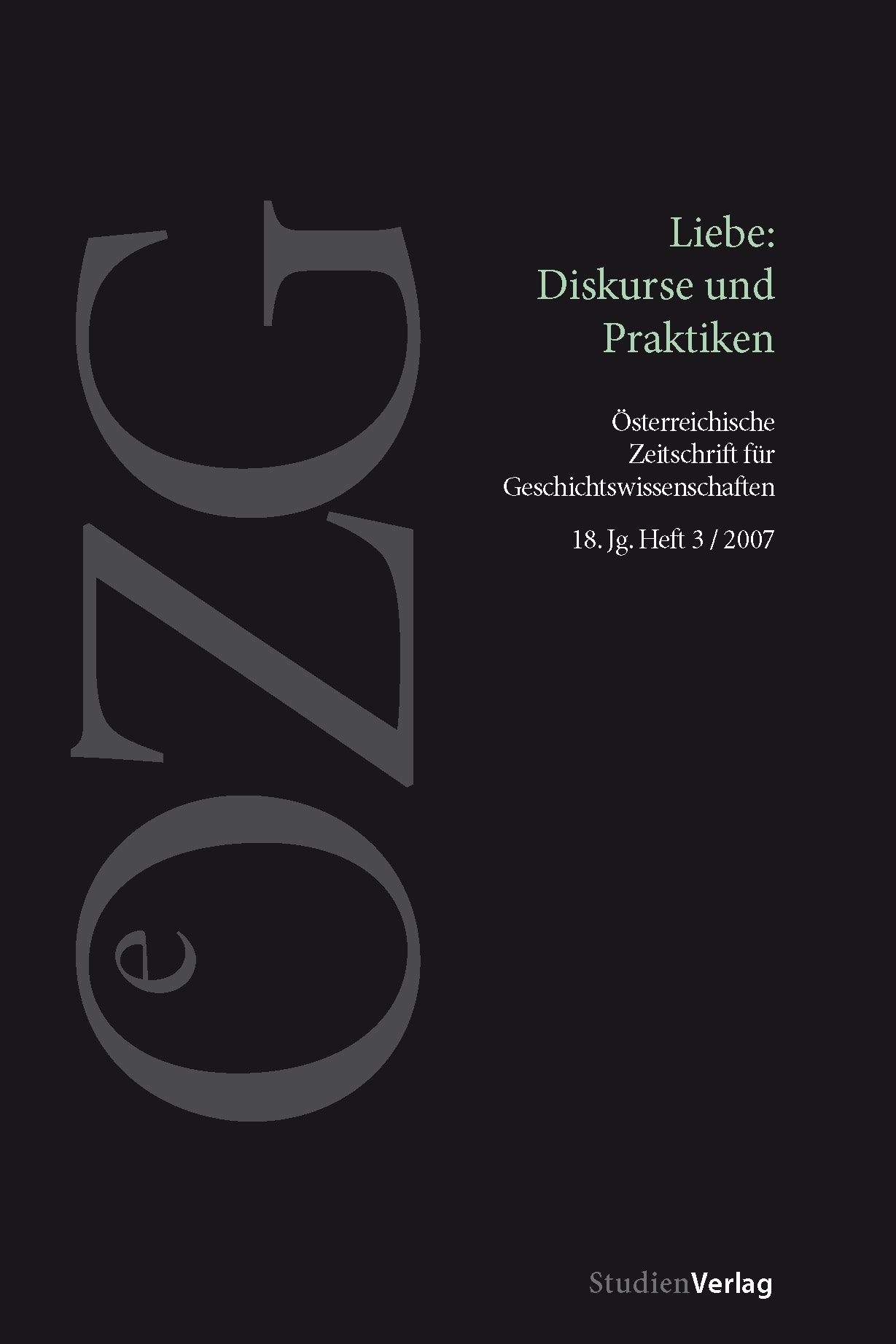Eheliches Glück und Störungen der sexuellen Genussfähigkeit in Medizin und Psychoanalyse 1890–1920
DOI:
https://doi.org/10.25365/oezg-2007-18-3-6Abstract
Disorders of sexual desire in couples appear in the wake of an ›eroticization‹ of the marital couple in the late 19th century. In the paper the formulation of new pathologies of sexual desire and satisfaction in german-speaking medicine and psychoanalysis is not understood as a self-referential process of »internal« discovery. Instead, the author tries to demonstrate that this scientific type of knowledge takes its contours mainly by relating itself to non-scientific discourses regulating and guiding marital sexual behaviour. The paper elaborates its various relations to marriage law and love literature. In demarcation to marriage law, doctors advocated marital sex as an experience of pleasure and satisfaction, extending the pathological far beyond the legal criteria of conjugal duty and physical capability. Independent from the legal regulation of divorce, they established a therapeutic field for treating marital dissatisfaction. The transfer of the notion of romantic love from literature authorised this endeavour and helped to introduce psychology and feelings into the mere biological concept of sexuality. From the romantic model, doctors adapted norms like equality, reciprocity and emotional intensity. Against fate and incident in love and its tragic failure in marriage – all popular motives in literature – they set out the promise of therapeutic fabrication of marital sexual happiness. Only psychoanalysts remain sceptical about the malleability of sex and the general suitability of marriage for sexual satisfaction.


